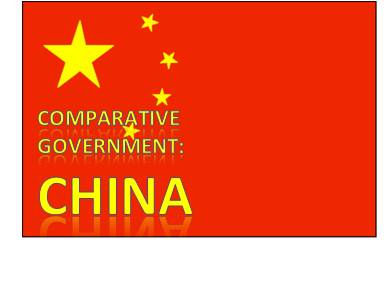In a recent New York Times article, Roger Cohen compares the economic effect of the differing family structures of China and the U.S. Cohen points out that the one-child policy makes children special in the family structure and thus the attention and investment in children is far greater than in the U.S. The article lauds China’s fast growth and says that it won’t stop anytime soon. While the negatives of China’s growth structure such as current housing bubbles are acknowledged, the article as a whole boosts China’s political decisions for their promptness. Intrestingly, this article comes at a time when there is rising resentment for the ineffectuality of the government in the face of the economic recession in America. Cohen says that the seemingly oxymoronic term “single-party democracy” has the potential to be the “most important political idea of the 21st century.” Although the Chinese government is extremely controlling, recent assortments in the form of nongovernmental organizations that work with the Chinese government.
The article touches on the comparative degress of perceived political effectuality and the economic progress in terms of family (social demographic effefct). Because China's government is centralized and does depend on the people's vote in daily matters, China, in the wake of a disaster, can act quickly instead of the slow political beaucracy of the American political scene; this leads to a trust that the government can acomplish change, although a faith that the government is neccesarily doing the right thing is not guranteed (this manifests itself in China's dismal human rights record). It is extremely important to note that this article is in fact an op-ed, meaning that Cohen's opinion permeates each paragraph as opposed to a simply, objective stating of the facts. It is clear throughout the article that Cohen is impressed with China; he glazes over any negative aspects of China's growth. He cites the stable family culture -- usually in the nuclear family form with Confucian values of filial duty -- as the grounding force which allows for rapid growth and acts as a "moral compass" in the face of modernity.
Grade this post.
Cohen, Roger. "Single-Party Democracy." The New York Times. The New York Times Company, 21 Jan. 2010. Web. 22 Jan. 2010.









No comments:
Post a Comment